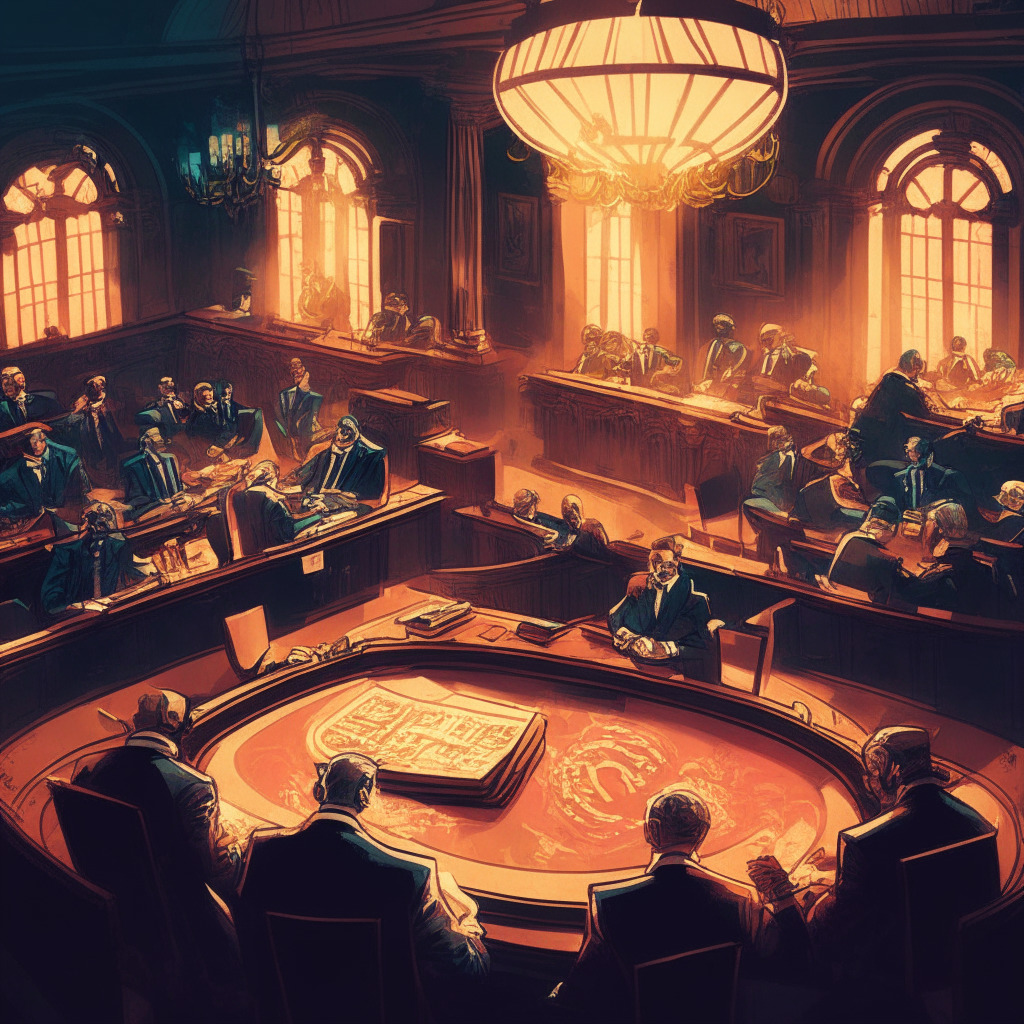In recent news, Ripple CEO, Brad Garlinghouse, criticized the U.S. Securities and Exchange Commission (SEC) for its handling of the Hinman emails and the ongoing Ripple lawsuit. According to documents, Hinman, a former SEC official, expressed no need for regulating Ethereum (ETH) as a security, mentioning he would consult with Ethereum cofounder Vitalik Buterin for further discussion. Meanwhile, Ripple and its executives faced a lawsuit arguing that XRP tokens were sold as unregistered securities.
As the Ripple vs. SEC lawsuit unfolds, it will be fascinating to see Judge Analisa Torres’ reaction to the Hinman documents, specifically the part indicating that Ethereum may not be considered a security. This prompts the question of whether there is a potential double standard in the way the SEC treats different cryptocurrencies.
Garlinghouse accuses the SEC of “weaponizing” the lack of regulatory clarity, leading to enforcement actions against crypto businesses. The agency’s open invitations to come forward and register crypto tokens may have been made in bad faith, considering the ongoing enforcement actions and their potential impacts. However, the counterargument would be that the SEC is simply exercising its mandate to protect investors from unscrupulous practices, ensuring that industry participants act with transparency and within legal boundaries.
The absence of clear regulations within the crypto space has led to confusion and frustration, with many believing that the playing field should be more equal and open. If the SEC allows certain cryptocurrencies to operate without regulation, then other projects like Ripple may feel unfairly targeted. On the other hand, such regulation is crucial in maintaining investor confidence and discouraging fraudulent activities.
With the Hinman emails now revealed, all eyes are on Judge Torres, awaiting her decision on the Summary Judgement. The outcome of this case could have significant implications for the broader cryptocurrency landscape and shape future regulatory decisions. The key conflict becomes clear: on one side, there is a call for regulation to ensure investor protection and maintain market integrity; on the other, there is the demand for a level playing field and uniform regulatory treatment.
Given the complexities of the crypto market and its rapid development, striking a balance between these two aspects is a challenging task. However, it remains essential for fostering innovation while protecting investors, and for the continued growth and acceptance of digital currencies in the mainstream financial world. As the situation unfolds, market participants and enthusiasts alike will be eagerly observing the verdict, understanding its potential consequences, and hoping for a balanced, constructive resolution.
Source: Coingape




